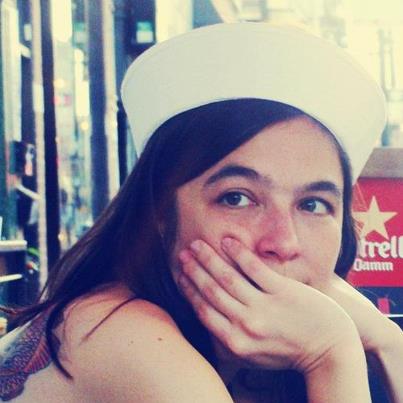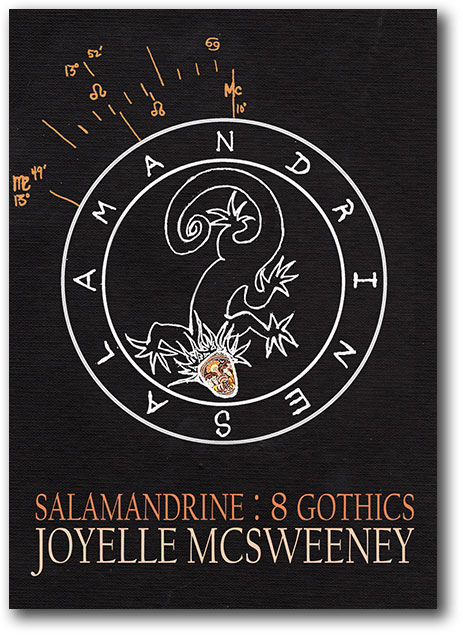
Madera: Many of the fictions in Salamandrine: 8 Gothics engage mothers, motherhood, and the Mother as figurations, sets of attitudes, as loci of language, as interlocutors discussing other mothers. Would you talk about what I read as interrogations of conventional ideas about mothers, iconoclastic takes on the Mother?
McSweeney: This book of mine is a war against capitalism through the body of the culturally vaunted (but actually exploited) figure of the mother. Here the mothers are totally undone, desperate, weaponized, vacant, bloodthirsty, deranged, or ingenious as hell. None of them is what you’d call wholesome—and neither is the writing.
Motherhood made it clear to me that there is just no way to survive the capitalist endgame that is the Anthropocene. Capitalism hearts mothers and it hearts poison and its hearts fear. As a new mother I was always being sold products to make my baby daughter “safer,” such as a crib, a cushion, or a bottle-sterilizing device, which would be recalled weeks later because it posed a strangulation hazard, caused cancer, or was covered in lead. To become a mother is to become a delivery system for such corporate and environmental poisons. This is literally the case since the chemical poisons in our environment—like pesticides, flame retardants, even jet fuel—pass so handily into breast milk.
So Salamandrine is largely a toxic and fatal book, but also a little intoxicated, full of novelties and chemical mirages and costumes and pretty language and dream actions. I’d say the meta-thesis is: things are so bad on earth that you have to freak out and be a vampire—or a revolutionary, or a poet—just to endure it. Therefore each piece employs a “B-movie” or subliterary genre – vampire tale, bodice-ripper, Green Zone thriller, etc.— that is not destined to be literarily “able-bodied” or to propagate literary convention or to “survive.”
 McSweeney: This book of mine is a war against capitalism through the body of the culturally vaunted (but actually exploited) figure of the mother. Here the mothers are totally undone, desperate, weaponized, vacant, bloodthirsty, deranged, or ingenious as hell. None of them is what you’d call wholesome—and neither is the writing.
McSweeney: This book of mine is a war against capitalism through the body of the culturally vaunted (but actually exploited) figure of the mother. Here the mothers are totally undone, desperate, weaponized, vacant, bloodthirsty, deranged, or ingenious as hell. None of them is what you’d call wholesome—and neither is the writing.